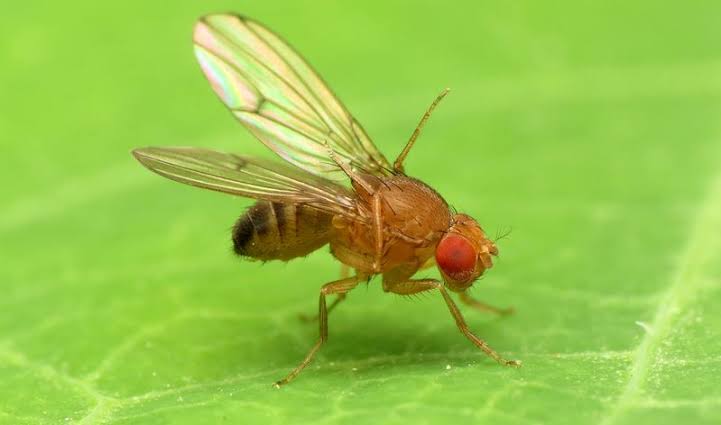Body fat in humans is stored in the adipose organ, which consists of distinctive fat depots. Our total body fats reside under the skin, storing 80-90% of total body fat in the form of Subcutaneous white adipose tissue (SAT) depots. Mainly fats depots are present in the abdominal (around the waist), subscapular (on the upper back), gluteal and femoral (thigh) areas. These subcutaneous adipose tissues have distinct morphological and metabolic profiles and exhibit sex-specific differences in size and function.
When it comes to comprehending how males and females store fat differently, the fruit fly is the key helper in this understanding. Fruit flies and humans are surprisingly alike in their genetic makeup. Studies have indicated that 75% of the disease-causing genes present in humans are also found in flies in similar form.
Researchers from UBC’s faculty of medicine recently published in PLOS Biology about their new fundamental genetic discovery in differences for fats storage and metabolism in both males and females using fruit flies. The study’s senior author, Elizabeth Rideout, an assistant professor in the Department of Cellular and Physiological Sciences, and graduate student Lianna Wat explain how this discovery will serve as a ladder in coming future for treating and managing metabolic diseases, including Type 2 diabetes and cardiovascular disease.
Q. How is fat storage and metabolism different between men and women?
A. In humans and most animals, females not only store more fats as compared to males but also breakdown fats slowly than their opposite gender. In humans for the same body mass index (BMI), women typically present with nearly 10% higher body fat compared to men. Aging increases adiposity in both sexes, but again, women are characterized by higher percent body fat throughout the entire life span While this difference in fat metabolism between men and women partly depends on lifestyle, biological factors such as sex hormones and sex chromosomes also play a role.
A lot of research has documented hundreds of fat metabolism genes that are controlled by sex hormones and sex chromosomes, but less is known about which of these genes cause the male-female difference in fat storage.

Q. What is the benefit of studying the fruit fly?
A. Fruit flies share nearly 60% of human genes and are studied by thousands of scientists around the world. The reason is that fruit flies and humans use the same or similar genes to develop into adults. And the short life cycle of the fly makes it an ideal subject for genetic experiments. Nearly 75 percent of human disease-causing genes can be found in the fruit fly in a similar form. It has been identified that fruit flies show a similar trend towards fats deposit and metabolism as animals and humans i-e the female flies store more fat than males, and metabolize it more slowly. This trend makes them a perfect animal to improve our understanding of the genes that affect male-female differences in fundamental cellular processes like fat metabolism.
Q. What did your study find?
A. Research has identified a major fat metabolism gene that regulates and maintains differences in fat storage in males and females. This idea was supported by the flies that showed without this gene, the male and female flies store the same amount of fat. This discovery greatly provided a link for identifying metabolic genes that control male-female differences in other aspects of development and the study of physiology.
Q. What are the implications for people?
A. This study of the identification of metabolic genes was the earliest stage of the discovery process. But we hope that recognizing the genes that showed the difference in male and female fat storage would provide a great deal of knowledge regarding risks of some major diseases linked with abnormal fat storage in males and females, including cardiovascular diseases and Type 2 diabetes. Knowledge about the roles of genes associated with fat storage and metabolism will play an important role in treatments and eradication of metabolic diseases. Today, only a few drugs are available for treating abnormal fat storage and metabolism. Drugs which are somehow available, show differential effect for males and females. Identification of genes in fruit flies that control differences in male and female fat storage will also give more detailed knowledge for treating abnormal fat metabolism through new therapies for males and females.
Also Read: A look into the extraordinary life and work of Jane Goodall
Saher Shahid is a student of BS – Environmental science, at Quaid-i-Azam University Islamabad. She has good communication skills and is a motivational speaker. Saher’s hobbies are Reading, Writing, Cooking, and Music.

